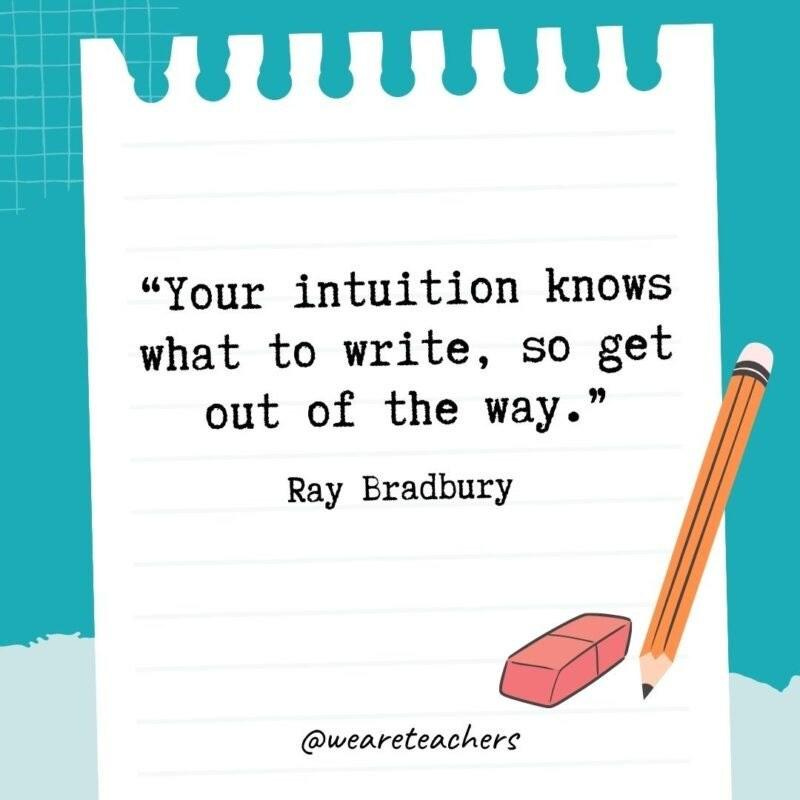Discovery Writing for All! (even planners!)
“Your intuition knows what to write, so get out of the way.” ~ Ray Bradbury
Hey y’all, it’s KimBoo! I’m an author and a podcaster who is also a librarian, text technology historian, and former I.T. project manager. I write about a lot of interesting things, I hope you agree! Please consider supporting me (and my dog!) so I can keep throwing errata & etcetera into the Scriptorium!
I am finishing up the edits on my book By the Seat of Your Pants: Secrets of Discovery Writing, and my editor sent me this meme:
Honestly, that’s pretty much the whole message of my book, so I would not blame you if you just printed that out and stuck it against the wall over your monitor instead of buying a whole book explaining it!
On the other hand, I do explain it, and in detail.
I explain it in detail because I believe there is a lot of misconception and, sadly, purposeful trash talk, around the subject of discovery writing, a.k.a “pantsing.” The good news is that these days, a lot more professional and (sometimes!) respected authors are talking about how they consider themselves “pantsers.” It’s not quite the shame-filled trap it used to be.
But, there is still a lot of misunderstandings about it.
Part of that stems from the fact that for a lot of writers, their first experience writing a story is through discovery writing. They have an idea they can’t let go of, so sit down and start writing it without any planning other than the vision in their mind’s eye. It’s exciting and inspirational for them to create something from nothing, just short of practical magic in real life!
They are merely beginners, though, and so the result is a long way from the polished work they envisioned. Not quite defeated but certainly humbled, they step back and start learning their craft. They (we) are told writing that way is fun, sure, but not acceptable. It’s doomed to failure, don’t you know? And they do know, because their first effort failed, didn’t it?
Writers are taught good story structures and then taught that the only way to create their own good story structure is by pre-planning it out ahead of writing it. Outlines! Summaries! Character profiles! Maps of locations! Playlists! (Okay maybe not that last one but it’s there in spirit.)
Discovery writing is shoved into a box with free association writing, treated as a plaything or good for journaling, and sometimes brought out for prompt exercises or flashfic like a one-trick pony. “Pantsing” is denigrated as the provenience of beginners, dilettantes, and bad writers.
I blame this on the homogenization of the publishing industry over the past 200 years, because as “literature” constricted into set (mostly white, mostly male) canon and publishing as a business flipped from “trade craft” to “industrialized” it became more important to standardize, well, everything.
Writing became a widget in the expensive, drawn out process of publishing, and “how to do it correctly” became enshrined in MFA programs and advice books. Publishers wanted books that sold, and authors wanted to write books that would be sold and read, so it was logical to simply look at what worked, break it down into parts, and replicate it.
Discovery writing does not fit into that mold.
Instead, discovery writing taps into deep veins of creativity via our intuition.
That said, if our intuition has not been nurtured and shaped by the study of craft, then discovery writing can lead to a sloppy, unformed story. That is why beginning writers have such problems to start with; it’s not the technique (discovery writing) which is at fault, it’s their lack of practice and experience. They are taught that it is both, though, and to properly develop their storytelling intuition they must stop “pantsing” like an amateur.
My experience as an author of multiple published books is that discovery writing is critical to both my motivation and my personal artistic growth. I spent years of my life not writing anything because heavily pre-planning a story destroyed my interest and motivation in writing it, yet I had been convinced that trusting my instincts was a path to wrack and ruin.
The happy medium my book explores is the concept that discovery writing is simply another technique that all writers can use at any stage of their development and for any type of story they want to write. The false dichotomy of “pantser OR planner” takes a lot of options off the table, probably to the detriment of the craft as a whole, and definitely to the detriment of individuals like me.
So yeah, anyway, my book is out now!



You are so right with this post. Planning and pantsing both have their places. I certainly do a combination of them.